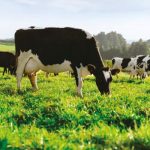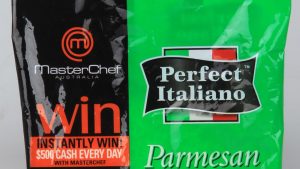
The Federal Court today ordered Lactalis Australia Pty Ltd (Lactalis) to pay $950,000 in penalties for contravening the Dairy Code of Conduct by failing to meet some of its obligations in relation to the 2020-21 milk season.
Following proceedings brought by the ACCC, the Court found in September 2022 that Lactalis had breached the Dairy Code by publishing and entering into agreements that allowed Lactalis to unilaterally terminate an agreement in circumstances that didn’t involve a material breach by farmers. In particular, under the agreement, Lactalis was permitted to unilaterally terminate the agreement when, in Lactalis’ opinion, the farmer had engaged in “public denigration” of processors, key customers or other stakeholders.
Today the court found clauses like these strike at the Code’s essential objective, and, although there was no evidence of any actual harm suffered, it was possible it had “a chilling effect on the farmers who were subject to it.”
“We took action because we considered Lactalis’ conduct would reduce transparency in the industry and served to perpetuate systemic bargaining power imbalances between processors and farmers,” ACCC Deputy Chair Mick Keogh said.
The Court also found that Lactalis had breached the Code by failing to publish its milk supply agreements on its website, and instead required farmers to sign up to receive their milk supply agreements by email.
“The Code was introduced to help dairy farmers make informed choices about where they sell their milk by ensuring there is transparency in pricing agreements and by allowing them to compare agreements from different processors in a timely fashion,” Mr Keogh said.
“These were the first contested proceedings under the Dairy Code and the outcome is an ongoing reminder that processors who fail to comply with the Code may face significant penalties.”
“Ensuring that small businesses receive the protections they are entitled to under industry codes continues to be one of the ACCC’s enduring compliance and enforcement priorities,” Mr Keogh said.
Background
Lactalis is one of Australia’s largest dairy processors and purchases milk from over 400 dairy farmers across all Australian states. The company produces a wide range of dairy products across a number of brands including Pauls, Oak, Vaalia and Ice Break.
The Dairy Code (the Competition and Consumer (Industry Codes—Dairy) Regulations 2019) is a mandatory industry code regulating the conduct of dairy farmers and milk processors in their dealings with one another that came into effect on 1 January 2020.
Under the Dairy Code, a processor must, by 2:00pm on 1 June each year, publish its standard form milk supply agreements on its website.
For every exclusive milk supply agreement, a processor publishes, a processor must also offer a non-exclusive supply option to farmers.
The Dairy Code requires processors to only purchase milk under a milk supply agreement. All agreements must comply with the code by meeting a number of key requirements, including:
- specifying a minimum price paid for the milk,
- consisting of a single document,
- specifying quality and quantity requirements, including testing procedures, and
- specifying the circumstances in which parties may unilaterally terminate the milk supply agreement – for processors to unilaterally terminate, the circumstances outlined must involve a ‘material breach’ by the farmer.
The publication obligations of the Dairy Code apply to all processors with an annual aggregated turnover of $10 million or more in the previous financial year.
Release number
ACCC Infocentre
Use this form to make a general enquiry

























